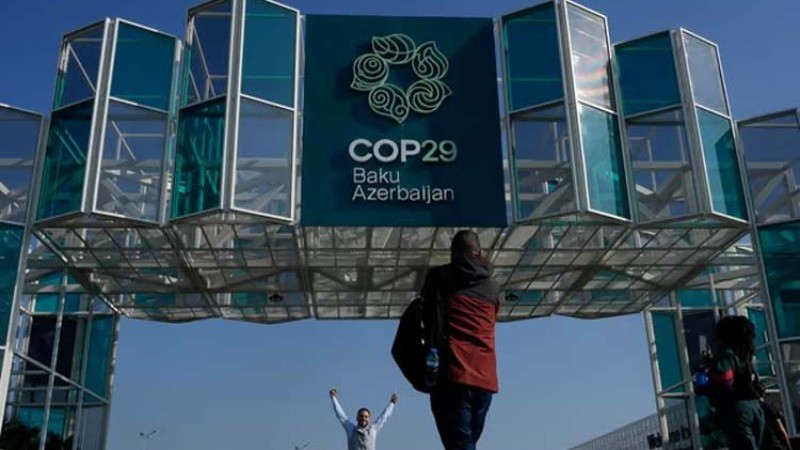
COP29 in Azerbaijan: The COP29 climate conference has emerged as a crucial event for the Global South, especially for nations most vulnerable to the growing impacts of climate change. This year’s conference, officially called the 2024 United Nations Climate Change Conference or COP29, is taking place in Baku, Azerbaijan, from November 11 to 22, 2024.
Focus on Financial Commitments
A primary focus of the talks is the urgent requirement for ambitious measures in climate mitigation and adaptation. There is a renewed emphasis on developed nations fulfilling their financial pledges. India's lead negotiator, Naresh Pal Gangwar, highlighted the need for mobilizing at least $1.3 trillion annually in climate finance from developed to developing countries during the High-Level Ministerial on Climate Finance.
India’s Call for Urgent Action
At the summit, Gangwar stressed the importance of immediate and decisive action, particularly for nations in the Global South. "We are at a crucial juncture in our fight against climate change. What we decide here will enable all of us, especially those in the Global South, to not only take ambitious mitigation action but also adapt to climate change," he said.
India’s Position on Financial Responsibility
India's stance aligns with the broader perspective among developing nations: developed countries should take on their historical responsibilities by providing grants, concessional finance, and other non-debt-based support. These funds are essential to tackle the twin challenges of adaptation and mitigation in regions facing severe climate impacts.
The Debate on Climate Finance Goals
Central to the discussions is the New Collective Quantified Goal (NCQG) on climate finance, intended to replace the unmet $100 billion annual target set by developed countries in 2009. Gangwar voiced concerns about redefining the NCQG, cautioning against altering it into an investment target instead of a committed funding goal from developed to developing nations.
Rejection of Private Investment Focus
India’s representative dismissed suggestions that overly rely on private investments and market mechanisms, arguing that such strategies would reduce the obligation of public funding from developed countries.
Support from Other Developing Nations
India's firm stance has been strongly backed by the African Group of Negotiators (AGN). AGN Chair Ali D Mohamed emphasized that funding commitments by developed nations are critical for achieving climate resilience and reducing emissions. "For Africa and other developing nations, the $1.3 trillion is essential for achieving climate adaptation, resilience, and emissions reductions," he said.
Challenges in Meeting Financial Commitments
India's intervention also highlighted the continued failure of developed nations to meet past commitments. Gangwar referred to the unfulfilled $100 billion annual pledge from 2009, expressing frustration over the lack of progress. He called for a consistent five-year review of climate finance obligations to ensure accountability.
Preparing for COP30 in Brazil
The outcomes of COP29 are expected to set the foundation for COP30 in Brazil. At that conference, nations will present updated Nationally Determined Contributions (NDCs), aiming to sustain the momentum toward the Paris Agreement’s objectives, especially as global warming nears the 1.5°C danger mark.
Concerns Over Private Sector-Led Climate Finance
A recent report has questioned the effectiveness of private sector-led climate finance. The analysis found significant disparities, with low- and lower-middle-income countries representing 42% of the global population but receiving only 7% of global clean energy investment in 2022. Contrary to the expectation that public finance would attract $5-7 of private investment, the reality was much lower, especially in low-income nations.
Fossil Fuel Lobbyists’ Influence at COP29
The presence of fossil fuel lobbyists at COP29 has sparked criticism. A coalition has reported that 1,773 fossil fuel lobbyists are present, surpassing the delegations of most countries. This raises concerns over potential interference with meaningful climate negotiations. "The fossil fuel lobby’s grip on climate negotiations is like a venomous snake coiling around the very future of our planet," said Nnimmo Bassey, highlighting the need to curb industry influence in climate discussions.